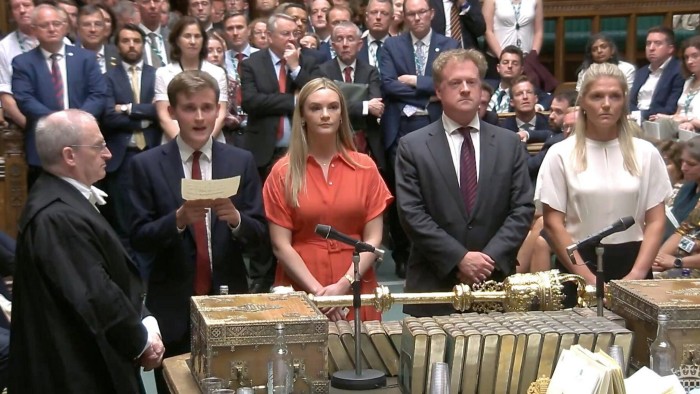Unlock the Editor’s Digest for free
Roula Khalaf, Editor of the FT, selects her favourite stories in this weekly newsletter.
Pat McFadden, one of the UK government’s most senior ministers, has admitted that the Labour party’s climbdown on welfare reform will mean there is less money to spend on other priorities as it faces a fiscal hole ahead of the autumn Budget.
McFadden, who is among Prime Minister Sir Keir Starmer’s most trusted lieutenants, said the passage of the welfare reform bill — which was gutted at the eleventh hour on Tuesday to stop Labour losing the vote — had been “a difficult process” that raised tough questions for the party.
“There is a cost to the decision taken yesterday, there’s no denying that,” McFadden told the BBC on Wednesday morning.
“You can’t spend the same money twice,” he added. “So more money spent on [welfare] means less for some other purpose.”
The Institute for Fiscal Studies has said that the last-minute changes to the welfare bill now mean the government will in effect save no money from the reforms, having originally intended to make cuts of almost £5bn.
If Chancellor Rachel Reeves is to stick to her fiscal rules, given her limited headroom, she will either need to find cuts elsewhere or raise taxes at the autumn budget, the IFS told the BBC on Wednesday.
“The government has moved from saving some money to saving nothing, at least by the end of this parliament,” said Helen Miller, incoming director of the IFS.
“It’s looking increasingly likely that if the government needs to do something they’ll turn to tax rises,” she added.
The UK’s borrowing costs ticked up in early trading on Wednesday, taking the 10-year yield up 0.04 percentage points to 4.50 per cent.
“Having boxed themselves in early with a lack of headroom to the fiscal rules, it was almost inevitable the walls would close in at some point,” said Gordon Shannon, a fund manager at TwentyFour Asset Management.
“Gilt investors wanted to see spending cuts,” he added. “Now the government’s only exit is tax rises, risking a death spiral of growth destruction.”
McFadden insisted the government would still push ahead with welfare reform and tried to deflect criticism that the U-turn on Wednesday had seriously undermined Starmer’s authority just one year into office.
He acknowledged, however, that little would happen on welfare reform ahead of November 2026, when the government’s review into disability benefits is expected to be completed.
On Tuesday, the government in effect suspended changes to Personal Independent Payments until after the review, after a backbench Labour rebellion looked like it could kill the bill. Starmer had already weakened the bill last week to try to win round rebels.
“There remains a case for welfare reform,” McFadden said. “[That] remains the case in the future.”
McFadden defended the position of Liz Kendall, secretary of state for work and pensions, with many commentators believing she was hung out to dry by the government.
Kemi Badenoch, Conservative party leader, on Tuesday said Kendall looked like she had been “tortured” by the process.
“She can carry on as she’s an excellent person to do this job,” McFadden said, attempting to put on a show of unity from the senior ranks of the government. “We stand together as a team.”



